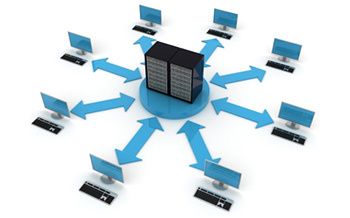
Small and medium sized businesses today are relying more than ever on IT systems to efficiently run their business, support customers and optimize productivity. These systems house sensitive digital data ranging from employee and customer information, to internal emails, documents and financial records, sales orders and transaction histories. This is in addition to applications and programs critical to daily business functions and customer service.
While corporate-level data losses and insider theft are well publicized, many smaller businesses have also become casualties of data loss and theft. Following a significant data loss, it is estimated that a small-to-medium sized business can lose up to 25% in daily revenue by the end of the first week. Projected lost daily revenue increases to 40% one month into a major data loss.
According to The National Archives & Records Administration in Washington, 93% of companies that have experienced data loss, coupled with prolonged downtime for ten or more days, have filed for bankruptcy within twelve months of the incident while 50% wasted no time and filed for bankruptcy immediately. Finally, 43% of companies with no data recovery and business continuity plan actually go out of business following a major data loss.
Still, a survey conducted by Symantec SMB revealed that fewer than half of SMBs surveyed backup their data each week. Only 23% of those surveyed said they backup data every day and have a business continuity plan in place.
Businesses play on a much bigger playing field than they did two decades ago. Any disruptive technological event - even the smallest of incidents - can have an amplified impact on day-to-day business and profitability. Being proactive with data recovery solutions, and having emergency response procedures in place prior to a disruption or data disaster, is the only way to minimize downtime and soften the impact of such events.

Comments
Post a Comment